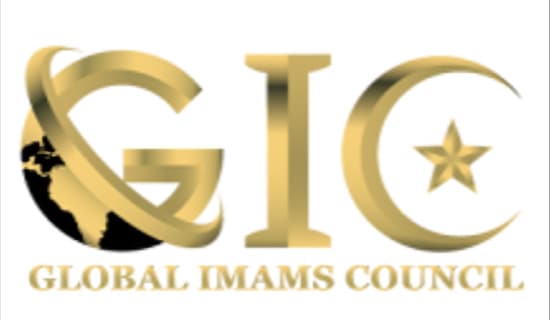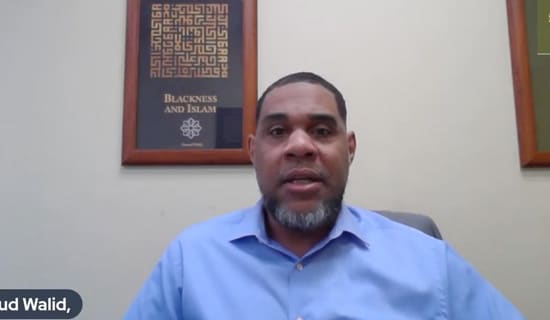On January 23, 2015, Salman bin 'Abd Al-'Aziz Al-Sa'ud became the new king of Saudi Arabia after his half brother, Saudi king 'Abdallah bin 'Abd Al-'Aziz Al-Sa'ud, passed away. On the occasion of Salman's ascension to the throne, MEMRI is republishing a report on statements he made in 2010 about the character of Islam in Saudi Arabia, and the debate they sparked in the kingdom.

Image: Alarabiya.net
Introduction
Following the 9/11 attacks, in which 15 Saudis participated, Saudi Arabia came under criticism because of the Wahhabi ideology prevailing in the country. It was claimed that Wahhabism, named for the 18th-century cleric Muhammad ibn 'Abd Al-Wahhab, fosters extremism, as evidenced by the Saudi perpetrators of 9/11.
Following this criticism, the Saudi religious establishment initiated efforts to differentiate itself from the extremist streams in the country, and claimed that these streams had distorted the original intent of Islam and that the "Wahhabi" label had been slapped on Saudi Arabia in order to slander it.
In a move rare for a representative of the Saudi royal house, Prince Salman bin 'Abd Al-'Aziz, governor of the Riyadh region and a head of the Saudi royal family, came out publicly on the matter, denying a connection between the term "Wahhabi," which he called derogatory, and Ibn 'Abd Al-Wahhab's views. He said that Ibn 'Abd Al-Wahhab and those who followed in his footsteps were simply Salafis who adhered to the original Islam of the Prophet Muhammad and his Companions, but that the term Wahhabi was coined in order to tarnish them and to imply that they had established a new and separate school of religious thought, and added: "...I defy anyone to find even a single letter in the letters and books of Sheikh [Ibn 'Abd Al-Wahhab]... contradicting the Koran or the Sunna."[1]
Prince Salman's remarks prompted several articles in the London daily Al-Hayat; in response, he himself penned an article for the paper, reiterating his claim that there is no such thing as Wahhabism.
Responding to the prince's article, Ibrahim 'Issa, editor of the Egyptian opposition daily Al-Dustour, wrote that Wahhabism does indeed exist, and that its ideology is radicalizing Egyptian society.
It should be noted that since the world began to take an interest in Saudi conservative religious circles, which have spawned several major terrorists, there has been sparring between the Saudi establishment and the Muslim Brotherhood, with the Saudis blaming the rise of the jihadi trend in their country on the radical Islam of Sayyed Qutb (1906-1966), the prominent thinker of the Radical wing of the Muslim Brotherhood in Egypt.
Saudi Researcher Al-Khalil: The Wahhabi Movement Needs Internal Reform
Among those who responded to Prince Salman's initial remarks was Saudi researcher Khalil 'Abdallah Al-Khalil; he wrote that the use of the term Wahhabi is legitimate, but that the Wahhabi movement needed internal reform: "It is important to amend from within the messages and practices of Salafism, founded by Sheikh Muhammad ibn 'Abd Al-Wahhab, so that this religious stream will be able to deal with the challenges [it faces today].
"There are three fundamental problems to which the Salafis should devote attention: the function of the modern state with regard to women, with the aim of integrating them into the workplace and into the life of society; the Salafi attitude towards art, including theater, cinema, the plastic arts, and the like; and the Salafi attitude toward the other, both within the Islamic nation and outside it. Likewise, it is important to rebuild mutually respectful relations between the followers of Sheikh Muhammad ibn 'Abd Al-Wahhab and the other streams of Islam, including the Shi'ites and the Sufis, without religious arrogance. In this way, it will be possible to build a Muslim society that will cooperate in charity and in strengthening the religion, far from the conflicts among the ideological schools of thought."[2]
To answer this response and others, and to further clarify his position, Prince Salman reiterated, in an article in Al-Hayat, that Wahhabism does not exist, and added that there is no need for amending the ideology prevailing in Saudi Arabia.
The following is his article:
Prince Salman: 'How Can We Demand Amendment To Messages That Are Identical To The Messages Of The Koran And The Sunna?'
"We have been made aware of [the articles in Al-Hayat about Wahhabism]. These articles touched on why the preaching of Sheikh Muhammad ibn 'Abd Al-Wahhab was called Wahhabism... and I therefore saw fit to clarify that some of the articles confuse Wahhabism with other terms, on the supposition that the matter is purely one of terminology. But the truth is that the da'wa of Sheikh Muhammad ibn 'Abd Al-Wahhab, which was supported by Muhammad bin Saud, the founder [of the Saudi state], and to which bin Saud's sons and descendants adhere to this day, is merely preaching to return to the principles of the religion of Islam as it was [originally] presented in the Koran and the Sunna.
SUPPORT OUR WORK

"Any person of integrity who familiarizes himself with the letters and books of Sheikh Muhammad ibn 'Abd Al-Wahhab will discover that this preaching contains nothing new that is contrary to the Koran and the Sunna or that opposes the practices of our ancestors. [Ibn 'Abd Al-Wahhab's preaching] is nothing but preaching to return to the correct roots of the pure Islamic faith, which are its foundation and its starting point. It is a mistake to claim that calling it Wahhabism is natural, because [this term is used] primarily to slander and tarnish [Saudi Arabia]...
"It is also a mistake to claim that the term Wahhabi resembles [the names of] the four schools [of Sunni Islam, namely Hanafi, Maliki, Hanbali, and Shafi'i, all named after their founders], because this implies that the sheikh founded a new school, when in fact he relied on fatwas and religious opinions given by all four schools [of Islam]. Even the claim that Wahhabism has become another facet of Salafism is wrong, because the correct Salafism is the way of life of our righteous ancestors, who were committed to the Koran and the Sunna. Sheikh Muhammad ibn 'Abd Al-Wahhab preached a return to this way of life. Contrary to the view that is unfortunately widely held in the modern age, his preaching did not use Salafism for political aims.
"The writer Khalil Al-Khalil called for reforming the messages and practices of Salafism, which was founded according to the da'wa of Sheikh Muhammad bin 'Abd Al-Wahhab. We ask: How can we demand amendment to messages that are identical to the messages of the Koran and the Sunna?
"Sheikh Muhammad bin 'Abd Al-Wahhab's preaching is neither a new method nor a new idea, and I again challenge anyone who can find in the sheikh's writings or letters any deviation whatsoever from the holy writings or from the deeds and actions of our righteous ancestors to bring them to us.
"I call on writers and researchers not to be carried away by those who claim that [there is nothing wrong with] using the term Wahhabism [and it] is only a matter of terminology. These people are forgetting that the real aim of spreading this term is to sully the correct and pure Salafism, which has no messages that contradict those presented in the Koran and the commandments of the Prophet Muhammad. Furthermore, such sullying is being done by various elements who do not like either [Ibn 'Abd Al-Wahhab's] preaching or what it led to, that is, the establishment of an Islamic state founded primarily on [Islam], which guards people's rights and serves the two holy places, namely the Saudi state"[3]
Al-Arabiya Deputy Director: Salman Is Defending The Name Of Saudi Arabia
Daoud Al-Shiryan, deputy director of Al-Arabiya TV, praised the article, saying that the prince was defending the good name of Saudi Arabia. However, Al-Shiryan also hinted that Saudi clerics must be open to criticism. He wrote:
"Anyone who is following this issue knows that there is justification for Prince Salman's sensitivity to the reduction of [the essence of] Sheikh Muhammad bin 'Abd Al-Wahhab's movement to the term 'Wahhabi.' Over time, this term has taken on meanings that completely contradict the accomplishments of this movement and its foundations - to the point where the image of Saudi Arabia is tarnished.
"There is no doubt that the term 'Wahhabism' is an insult when used in the Western and Arab political and media discourse. The incitement against the 'Sheikh and Emir' movement [i.e. against Saudi Arabia, which is the product of sheikhs - that is, clerics advocating the writings of Ibn 'Abd Al-Wahhab - and the emirs of the House of Sa'ud] reached its height after the events of 9/11. For this movement's opponents it was not enough to settle accounts with a few personages for their errors, and with the customs and practices of some regions [of Saudi Arabia]; they blamed [Saudi Arabia] for the terrorism that is sweeping the world.
"[Saudi Arabia's opponents also disregarded the fact] that this movement had never known revolution, or rebellion, or that its followers had never been in the opposition. It was born, and grew, under the aegis of a military man, [Muhammad bin Saud], the founder of the [Saudi Arabia], and produced a stable, monarchic state. Perhaps it was violent at first, but that has been characteristic of all such movements throughout history. Nevertheless, now the movement has matured; it is nearly 300 years old. For this reason, Prince Salman's concern is appropriate.
"Perhaps Salman bin 'Abd Al-Aziz's article will create an opportunity to open up this file, and talk about the movement of Sheikh [Ibn 'Abd Al-Wahhab], while being willing to accept criticism that is not accusatory or hateful."[4]
Editor Of Egyptian Daily: Wahhabism Is Fanatical And Seeks To Monopolize
Ibrahim 'Issa, editor of the Egyptian opposition daily Al-Dustour[5] vehemently attacked Prince Salman's statements, calling Wahhabism a fanatical movement responsible for the radicalization of clerics in Egypt and throughout the Islamic world. He wrote:
"... And so, Your Majesty the prince, you decided for us that Wahhabism is the message of the Koran and the Sunna. How enlightened and tolerant of you!
"That is just the problem with Wahhabism, oh prince. It presumes to claim that it is the [sole] legitimate representative of the Koran and the Sunna, and that its understanding of Islam is the correct and pure understanding. This would seem to be a monopoly on the understanding of the religion, and a rejection of others' understanding of it. There is nothing humble about issuing such resolute rulings.
"A Wahhabi does not allow himself to say, 'This is my understanding of the religion, and my way of perceiving its concepts and aims.' Salman, the Wahhabi prince, has clearly demonstrated his fanaticism, by saying that Wahhabism is the correct and pure Islam!
"I do not wish to talk with him or anyone else about the means by which this pure Islam managed to dominate the minds of people in the Hijaz, and I will not go back decades to the details of the mass slaughter that was carried out, when the Wahhabi [dynasty] was first established, against the [other] Muslims in the Arabian Peninsula, in order to impose this pure Islam. I will make do with [describing] the characteristics of Wahhabism, which the prince considers to be the pure Islam.
"I remind him that the sheikhs and muftis of the [Wahhabi] movement have refused to acknowledge that the earth is round and rotates on its axis. It is [Wahhabism] that until not long ago prevented girls and women from studying; it is [Wahhabism] that bans them from driving vehicles; it is [Wahhabism] that forces [them to wear] the niqab and the burqa; it is [Wahhabism] that sees the West as infidel and prevents the construction of houses of worship for other religions; it is [Wahhabism] that declares the Shi'ites to be infidels; it is [Wahhabism] that bans elections; and it is [Wahhabism] that holds a whole series of other narrow, formalistic, and shallow perceptions of the religion. Wahhabism is a model of unilateralism, intolerance of other Islamic schools of thought, and fanaticism against other religions.
"All the abovementioned notwithstanding, [Wahhabism] and its adherents are entitled to their perceptions. Our problem with it is that it is attempting to force itself on all Muslims. When oil wealth enabled them to do so, [the Wahhabis] went out and raided the Arab world, particularly Egypt, via the funding of hundreds of religious institutions and dozens of printing houses, newspapers, television stations, and websites, in addition to Al-Azhar [University, in Egypt]... [The Wahhabis] printed millions of copies of books by Salafi imams, and hundreds of thousands of books that spread its ideas and accuse others, including the Sufis, the Shi'ites and the innovative [jurisprudents and scholars], of deviating from the religion.
"For this reason, I stress that Saudi Arabia is a country that is friendly with Egypt, but that Wahhabism, as a school of thought and religious law, is Egypt's enemy. It opposes the moderate understanding of Islam, its commandments, its texts, and its legal doctrine, which prevailed in Egypt ([at least] until the invasion of Wahhabism). Wahhabism, which is funded by Saudi Arabia, has [even] crossed the borders of the Arab world to the Islamic and Western world, and made itself an authority on religion and a judge of the religion of others.
"Prince Salman is defiant, challenging 'anyone who can find in the sheikh's writings or letters any deviation whatsoever from the holy writings or from the deeds and actions of our righteous ancestors to bring them to us.' But in truth, I, for example, refuse to stand before the prince, because I am not claiming that Wahhabism deviates from the Koran or the Sunna, but that it understands the Koran and the Sunna in its own unique way. It is entitled, and we are entitled, to understand them in different ways.
"The deeds of our righteous ancestors are the deeds of people who lived before us, and we can choose whether to embrace them as a model, or to act differently than they did, and understand them in our [own] way and act according to our understanding of the needs of our time and according to the interests of Islam in every time and place. But [the practice of] remaining frozen [in the generation of our ancestors] and of rigidly emulating [their deeds], mindlessly and without applying individual judgment, is typically Wahhabi.
"Wahhabism does not deviate from the religion - and anyone who disagrees with or opposes it is not deviating from the religion [either]. If the Wahhabis were convinced of this, they would be satisfied and tolerant of others. But as soon as they become convinced of this, they will no longer be Wahhabis at all."[6]
Endnotes:
[1] Al-Sharq Al-Awsat (London), March 17, 2010.
[2] Al-Hayat (London), April 15, 2010.
[3] Al-Hayat (London,), April 28, 2010.
[4] Al-Hayat (London), April 29, 2010.
[5] For more on Ibrahim 'Issa, see MEMRI Inquiry and Analysis No. 570, "The Iranian Lobby in the Egyptian Press," December 6, 2009.
[6] Al-Dustour (Egypt), April 30, 2010.




